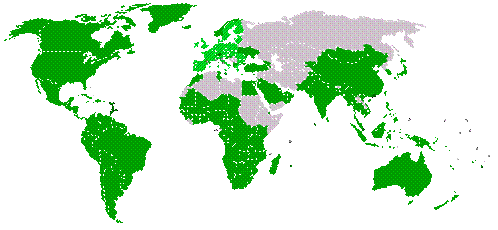The World Trade Organisation (WTO)
 The World Trade Organisation helps to promote free trade by persuading countries to abolish import tariffs and other barriers to open markets. The WTO was established in 1995 replacing the General Agreement on Tariffs and Trade (GATT), which had been formed shortly after the Second World War.
The World Trade Organisation helps to promote free trade by persuading countries to abolish import tariffs and other barriers to open markets. The WTO was established in 1995 replacing the General Agreement on Tariffs and Trade (GATT), which had been formed shortly after the Second World War.
The WTO consists of 153 members representing more than 97% of total world trade. It also has 30 'observer' countries, mostly seeking membership. It has evolved into a complex web of agreements covering everything from farm goods and textiles to banking and intellectual property.
The WTO is the only international agency overseeing the rules of international trade. It helps to settle trade disputes between governments. Advocates of free trade say the gains in economic welfare are substantial. Critics of the WTO say the poor have just got poorer as a result of free trade. They say that the rich countries have maintained protectionist policies, and that poorer countries do not have the type of manufacturing infrastructure and economies of scale to enjoy the benefits of free trade.
